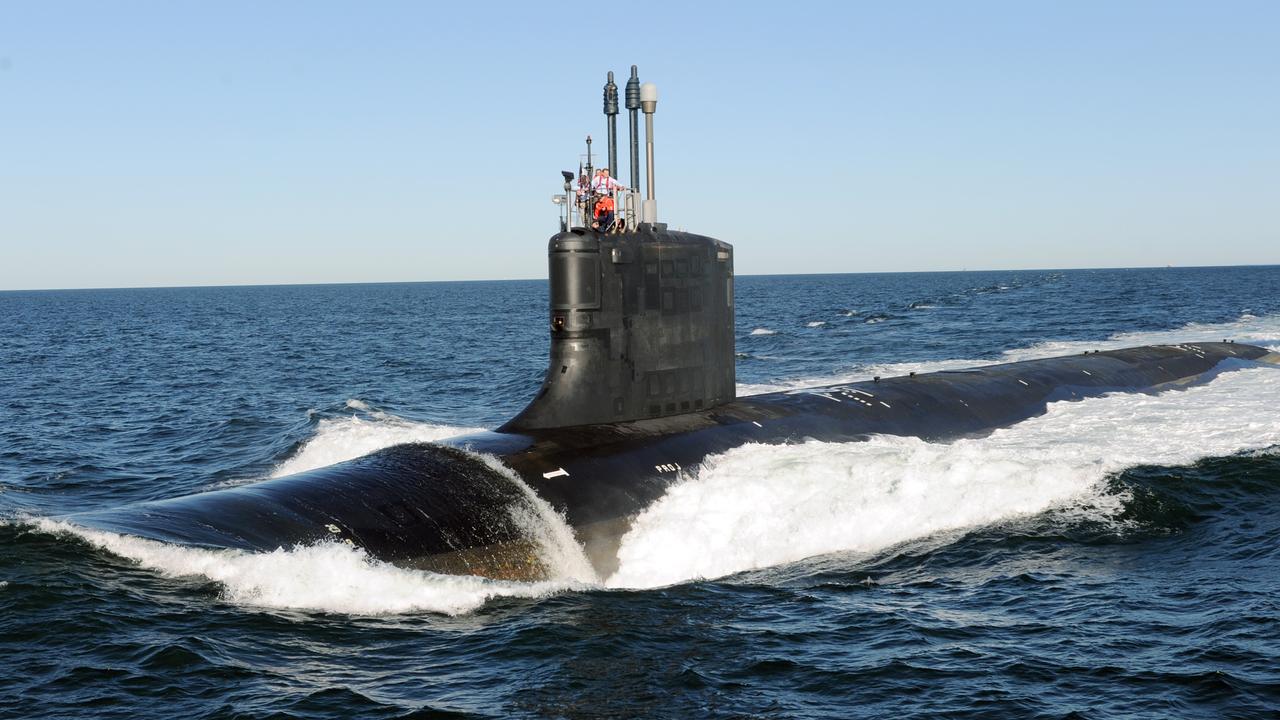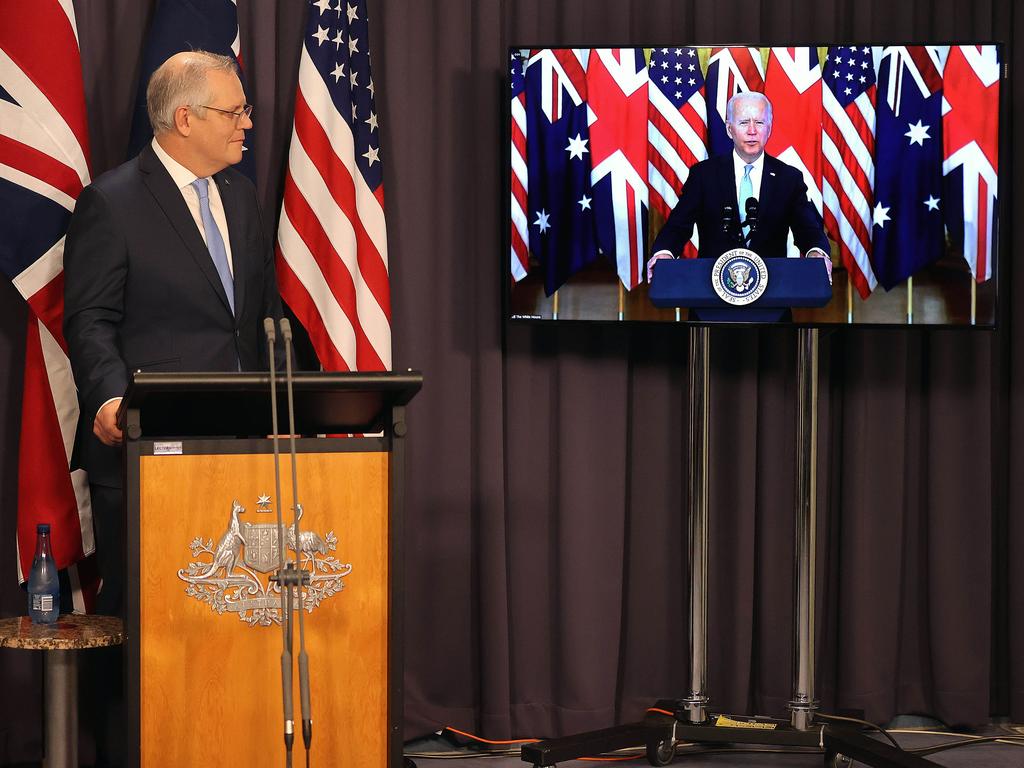Australia’s nuclear submarine deal will boost ties with US
America trusting Australia with their nuclear technology is a huge mark of confidence and the French were unreliable allies, writes Piers Akerman.
China has been caught off-guard by the historic AUKUS agreement. It is a real game changer for the Indo-Pacific region and Prime Minister Scott Morrison, Defence Minister Peter Dutton can take the credit for decisively ending the disastrous deal with the French government-backed Naval group (formerly DCNS) announced by former PM Malcolm Turnbull and former Industry, Innovation and Science Minister Christopher Pyne on Tuesday, February 26, 2016.
Readers of this column may recall that I wrote on Sunday, May 1, 2016, that the deal “only makes a little sense if there is a secret plan to upgrade the conventionally powered diesel-electric submarines to nuclear power at some future stage”. There wasn’t.

The French President Francois Hollande and his Defence Minister Jean-Yves Le Drian played them.
The initial $50 billion cost had nearly doubled by last week and there still wasn’t a comprehensive plan of the ludicrous nuclear-cum-diesel prototype of the Shortfin Barracuda 1A. The French, as I wrote, reckoned they would create 4000 jobs in Le Drian’s electorate and South Australian Pyne estimated there would be 2800 in his home state. Pyne now claims he was all for nuclear-powered submarines from the outset.
Our defence chiefs need a good bollocking too. The admirals and Russel Hill bureaucrats must accept culpability for their insane desire to redesign the wheel whenever a contract for new kit is be let.
There was no need to design a submarine for “Australian” waters. But like silly global warming warriors, they insisted that they had to tailor their boats to their specifications when perfectly acceptable craft were being launched by experienced yards in Germany, Japan, the UK and the US.
The brass always succumbs to an irresistible urge to fiddle with tested weaponry sending costs sky rocketing and creating major delays.
Under the agreement with the UK and the US brokered by Morrison and Dutton, we essentially have two choices of submarine. The British Astute-class and the American Virginia-class. Their systems, valuably, are totally compatible. All Virginia-class submarines production slots are taken but there are some we could get for the comparable UK Astute, speeding delivery. That the Americans trust us with their nuclear technology and weapons systems (with they’ve previously only shared with the UK – since 1958) is a huge mark of confidence. They didn’t trust the French, one of the many problems with the DCNS-Naval deal that Turnbull, Pyne and then Defence Minister Marise Payne ignored.
There was good reason for the lack of trust in the French deal, as the Indian government found when plans for its French-built submarines were widely leaked. They were regarded as unreliable allies. They had the biggest army in Europe in WWII and the Germans rolled into Paris with barely a pause. During US President George H. W. Bush’s administration, US defence department undersecretary Jeb Babbin remarked “going to war without France is like going deer hunting without an accordion. You just leave a lot of useless noisy baggage behind.” Turnbull, Pyne, Payne and a raft of admirals were impressed with the accordion players. Now the French have withdrawn their ambassadors from Canberra and Washington.
Critics of the new submarine deal are wilfully overlooking the fact that the tripartite alliance is more important than the submarines.

Following his disastrous retreat from Afghanistan Biden needed a positive headline though British PM Boris Johnson probably would have agreed to a joint agreement with Australia because of former PM Tony Abbott’s support during the Brexit fiasco. President Biden wasn’t a Brexit fan and Boris hasn’t forgotten. If the UK had remained in the European bloc, it is most likely that it would have vetoed Britain entering this alliance.
China’s confected outrage is no surprise. Even though the Celestial Kingdom wasn’t mentioned in any of the communiques, if it hadn’t been for President Xi’s belligerence, there wouldn’t be a need for an alliance.
NZ’s pathetic refusal to permit nuclear-powered vessels in its waters is nothing more than a squeak from a defenceless nation happy to seek shelter from powerful friends without contributing to the cost. As Biden said “the future of each of our nations and indeed the world depends on a free and open Indo-Pacific enduring and flourishing in the decades ahead”.








